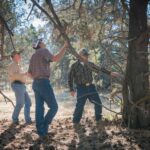 It’s unusual for Oregon’s rural communities to get the spotlight. With most of the population of the state living in the Portland Metro area, rural towns are out of sight and generally out of mind. Rural leaders for years have told me that they figure they are pretty much on their own to reinvent their depressed economies, and unfortunately I have to agree with them.
It’s unusual for Oregon’s rural communities to get the spotlight. With most of the population of the state living in the Portland Metro area, rural towns are out of sight and generally out of mind. Rural leaders for years have told me that they figure they are pretty much on their own to reinvent their depressed economies, and unfortunately I have to agree with them.
It’s unusual for Oregon’s rural communities to get the spotlight. With most of the population of the state living in the Portland Metro area, rural towns are out of sight and generally out of mind. Rural leaders for years have told me that they figure they are pretty much on their own to reinvent their depressed economies, and unfortunately I have to agree with them.
Most rural counties have higher unemployment, worse poverty, fewer services and a weaker economy than the urban centers. But in my years of traveling around the state covering Oregon, I’ve seen few rural communities giving up. Despite the recession, or loss of timber money, another business defection or any one of the thousands of small cuts that chip away at their towns, rural Oregon keeps fighting.
Which is why the Rural Economy Project is so heartening. It’s a collaboration of the Rural Development Initiative, Oregon Public Broadcasting, Sustainable Northwest, the Oregon Consortium/Workforce Alliance and WorkSource Oregon and is funded by the Corporation for Public Broadcasting. The project’s mission is to look at the issues facing rural economies and has several elements, including a five-part radio series produced by OPB, which launched on April 20, and special editions of its Think Out Loud program, which kicked off its first forum on April 19 in Newport.
And then there is Ripple, a website that was developed by RDI that will be the home of the OPB stories. “OPB needed strong partners in rural communities,” says Robert Ault, RDI’s regional program manager for networking. “Ripple was the perfect way to archive and disseminate what they are doing.”
Ripple has existed for about four years as RDI’s community website, a place for rural people to share, connect and have their voices heard. It was relaunched in January to make it more “beautiful, important; and to tell good stories,” says Ault.
It is all those things. One of the stories is a moving report by OPB about being unemployed in Burns, where reporter Ethan Lindsey is following 61-year-old Mike Rust. You may have never visited Burns, it being many hours east from the I-5 population corridor. It is strikingly beautiful and brutally hit with high unemployment. In Rust’s voice you hear the pride of a working man, but also the pain of joblessness. There are other voices, other stories that have the same impact.
Ripple also hosts blogs and shared resources. Ault says the next phase is how to deepen and broaden what’s on the site. Moving beyond the website, Ripple is coming off the screen and holding its first event May 21-22 in Hood River. It’s a chance to meet the people behind the curtain, and a chance to join in discussions about rural economic issues.Yes, it matters, even if you don’t live there.
But if you can’t make it, tune in to hear what OPB, Ripple and the other partners is this effort to spotlight rural Oregon are doing. You don’t need to drive all day to Burns to gain some understanding of what’s happening to your fellow Oregonians. You just need to tune in to the stories that the Rural Economy Project is producing. And really listen.
Robin Doussard is Editor of Oregon Business.



